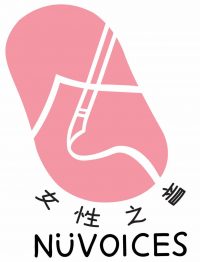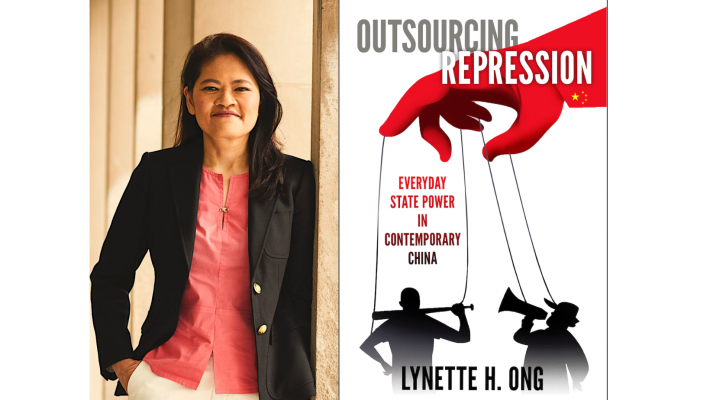Professor Lynette Ong joins us on the podcast this week to discuss her new book Outsourcing Repression: Everyday State Power in Contemporary China. While in conversation with Joanna Chiu, Lynette discusses China’s use of nonstate actors who minimize resistance during government land grabs, housing demolitions, and (perhaps most notably) tracking foreign journalists who conduct sensitive reporting in China. Who are these nonstate actors? How are they recruited and why are they hired? Lynette’s research fills in the gaps, gathered as the window narrowed and closed for China’s civil society in recent years.
This episode concludes this season of the NüVoices podcast! Subscribe for exciting feed drops with affiliated podcasts this summer and catch us in September for new episodes. Thank you for listening.
Show notes:
Lynette’s first two books The Street and the Ballot Box and Prosper or Perish: Credit and Fiscal Systems in Rural China
Outsourcing Repression: A Conversation with Lynette Ong (Made in China Journal)
“‘Batman’ star Bale punched, stopped from visiting blind Chinese activist” (CNN)
“What Wukan Means” (ChinaFile)
Violent Entrepreneurs: The Use of Force in the Making of Russian Capitalism by Vadim Volkov
The Vory: Russia’s Super Mafia by Mark Galeotti
About Lynette Ong:
Lynette is a Professor of Political Science at the University of Toronto (from July 1, 2022), with a joint appointment at the Department of Political Science and the Munk School of Global Affairs and Public Policy’s Asian Institute.
She is the author of Outsourcing Repression: Everyday State Power in Contemporary China (Oxford University Press, 2022), The Street and the Ballot Box: Interactions Between Social Movements and Electoral Politics in Authoritarian Contexts (Cambridge University Press, Elements Series in Contentious Politics, 2022), and Prosper or Perish: Credit and Fiscal Systems in Rural China (Cornell University Press, 2012).
Her academic publications have appeared in Perspectives on Politics, Journal of Comparative Politics, China Quarterly, China Journal, Journal of Contemporary Asia, among others.
Her research has been covered in the Economist, New York Times, Wall Street Journal, Washington Post, South China Morning Post, etc.
About Outsourcing Repression:
“How do states coerce citizens into compliance while simultaneously minimizing backlash? In Outsourcing Repression, Lynette H. Ong examines how the Chinese state engages nonstate actors, from violent street gangsters to nonviolent grassroots brokers, to coerce and mobilize the masses for state pursuits, while reducing costs and minimizing resistance. She draws on ethnographic research conducted annually from 2011 to 2019–the years from Hu Jintao to Xi Jinping, a unique and original event dataset, and a collection of government regulations in a study of everyday land grabs and housing demolition in China. Theorizing a counterintuitive form of repression that reduces resistance and backlash, Ong invites the reader to reimagine the new ground state power credibly occupies. Everyday state power is quotidian power acquired through society by penetrating nonstate territories and mobilizing the masses within. Ong uses China’s urbanization scheme as a window of observation to explain how the arguments can be generalized to other country contexts.”
Self-care tips:
Joanna and Lynette both have finding solace and relaxation while reading in cafes. Lynette also practices yoga regularly to unwind.

